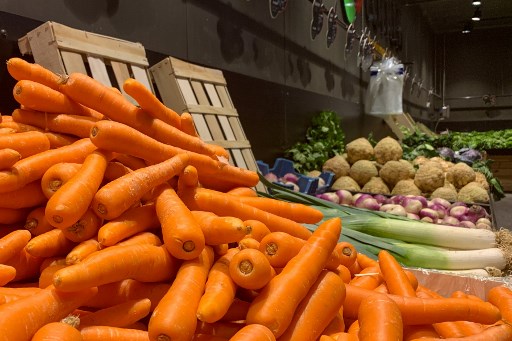
403
Sorry!!
Error! We're sorry, but the page you were looking for doesn't exist.
UN report projects global food import bill to increase 2.2 percent annually in 2024
(MENAFN) According to the latest Food Outlook report by the UN Food and Agriculture Organization (FAO), the global food import bill is projected to rise by 2.2 percent year-on-year, surpassing USD2 trillion in 2024. This increase is mainly attributed to higher costs of key commodities such as cocoa, coffee, tea, fruits, and vegetables. The report specifically highlights a significant surge in import expenditures for cocoa, coffee, and tea, expected to rise by 22.9 percent. These price hikes are primarily driven by unfavorable weather conditions and logistics challenges that have impacted production and supply chains for these goods.
Cocoa prices have nearly quadrupled, coffee prices have increased almost twofold, and tea prices have risen by 15 percent compared to typical levels. These price escalations have had a notable impact on countries like Burundi, Ethiopia, Sri Lanka, and the Ivory Coast, which heavily rely on the export of these commodities to fuel their economies. The FAO report also emphasizes the disparity in the impact of food import costs, with high-income countries accounting for two-thirds of the global food import bill. These nations are expected to face a 4.4 percent increase in 2024, while lower-income countries may see a contraction in their food import expenditures.
The report also underlines that global food security is under increasing strain due to various challenges, including extreme weather events, geopolitical tensions, and shifting policies. Despite the decline in wheat and coarse grain production, rice output is forecast to reach an all-time high, providing some relief to global food supplies. Additionally, fisheries production is expected to rise by 2.2 percent, largely driven by growth in aquaculture.
Overall, the FAO warns that while the global food import bill is on the rise, the economic pressures from escalating commodity prices and broader geopolitical instability could continue to pose challenges for both high- and low-income nations, especially in securing stable and affordable food supplies.
Cocoa prices have nearly quadrupled, coffee prices have increased almost twofold, and tea prices have risen by 15 percent compared to typical levels. These price escalations have had a notable impact on countries like Burundi, Ethiopia, Sri Lanka, and the Ivory Coast, which heavily rely on the export of these commodities to fuel their economies. The FAO report also emphasizes the disparity in the impact of food import costs, with high-income countries accounting for two-thirds of the global food import bill. These nations are expected to face a 4.4 percent increase in 2024, while lower-income countries may see a contraction in their food import expenditures.
The report also underlines that global food security is under increasing strain due to various challenges, including extreme weather events, geopolitical tensions, and shifting policies. Despite the decline in wheat and coarse grain production, rice output is forecast to reach an all-time high, providing some relief to global food supplies. Additionally, fisheries production is expected to rise by 2.2 percent, largely driven by growth in aquaculture.
Overall, the FAO warns that while the global food import bill is on the rise, the economic pressures from escalating commodity prices and broader geopolitical instability could continue to pose challenges for both high- and low-income nations, especially in securing stable and affordable food supplies.

Legal Disclaimer:
MENAFN provides the
information “as is” without warranty of any kind. We do not accept
any responsibility or liability for the accuracy, content, images,
videos, licenses, completeness, legality, or reliability of the information
contained in this article. If you have any complaints or copyright
issues related to this article, kindly contact the provider above.


















Comments
No comment